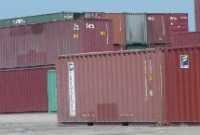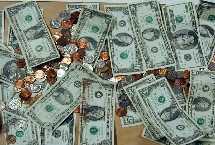The Bank of Israel Foreign Exchange Activity Department advises that in March there was a further increase in capital inflow to the economy. This was reflected in a rise in nonresidents' direct and portfolio investment in Israeli shares.
Capital outflow, on the other hand, was significantly lower than expected, despite the tax reform and the continued contraction of the interest differential. Data for the first quarter indicate a sharp rise in capital inflow via all channels compared to the levels in previous years.
The NIS weakened moderately against the dollar in March, by 0.1 percent, and strengthened against the currency basket by 0.8 percent. This was due to the strengthening of the dollar worldwide. However, the NIS weakened against the dollar by less than did the currencies of the other emerging markets.
The downward trend in exchange–rate risk, as reflected by the volatility of over-the-counter (OTC) options that had started in mid-January persisted, falling from 6.7 percent to 4.6 percent at end-March. On the other hand, in other emerging markets this volatility started rising in March. Its level in those markets, about 10 percent, is far higher than in Israel.
Activity of the various segments in the NIS/foreign-currency market
Nonresidents During March nonresidents were net sellers of foreign currency, to the amount of about $ 1.5 billion: purchases of about $ 1.7 billion of Israeli shares, direct investment of about $ 1.1 billion, and investment of about $ 0.7 billion in trading shares, partially offset by sales of $ 0.3 billion of government bonds.
In the first quarter of 2005 nonresidents invested about $ 3.4 billion in Israeli shares: about $ 1.7 billion in direct investment–exceeding the amount invested throughout the whole of 2004-and a similar amount in portfolio investment, of which some $ 1 billion was in shares on the Tel Aviv Stock Exchange (TASE). In this period nonresidents accounted for a markedly higher proportion of the TASE turnover, reaching about 20 percent, compared to an average of 9 percent in the first months of 2004.
Foreign-currency purchases by the business sector in 2004 resulted in a change of direction of its exposure to exchange–rate changes, and during the year it switched from a surplus of foreign-currency liabilities to a surplus of foreign-currency assets, a situation that continued in the first quarter of 2005.
Institutional investors invested about $ 250 million in foreign assets abroad in March, mainly in shares and deposits. This took place against the backdrop of the implementation since the beginning of 2005 of the final stage of tax reform that eliminates the tax discrimination that had favored domestic investment over investment in foreign securities. Institutional investors invested about $ 0.5 billion in foreign assets in the first quarter of 2005.
Israel's Foreign Exchange Activity in March 2005
The Bank of Israel Foreign Exchange Activity Department advises that in March there was a further increase in capital inflow to the economy. This was reflected in a rise in nonresidents' direct and portfolio investment in Israeli shares
18.04.05 / 00:00
•
More articles that may interest you

Israel Railways inaugurated the Tel Aviv-Jerusalem and Tel Aviv-Ashkelon lines
Finance Ministry: 2006 growth could reach 5%

Israel Airports Authority accused of discriminating against foreign airlines

Israeli exports to Jordan in 2004 up 55%

Polished diamond exports up 14% in March 2005
Bank of Israel forecasts: economy growing 4% in 2005
More news from Industry & Trade Section
>Fuel imports up 29% in January - March/11.04.05
>Export Institute to boost wine exports to Europe/03.04.05
>2004 - Smaller Businesses increased Exports by 15%/03.04.05
>French Customs punish Israeli exporters despite agreement/03.04.05
>High-tech exports down 6.7%/03.04.05
>Israeli medical equipment sold to Arab countries/28.03.05
>Exports to EU in February down 1.2%, imports up/28.03.05
>Brosh: number of exporters to the US grew by 5% in 2004/28.03.05
>"2005 is expected to be a very good year for the textile industry"/28.03.05
>Lynn & EU Ambassador agreed on increase bilateral co-operation/21.03.05
